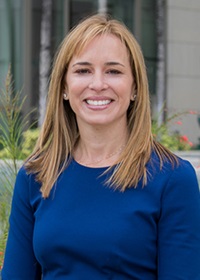Whether in our clinics or hospitals, or through community outreach, the Sylvester Comprehensive Cancer Center staff, physician scientists and students share a common goal: to help you and your loved ones lead healthier lives.
South Florida is a unique place. The diversity of our population is something to celebrate, but it presents unique challenges in reducing cancer disparities across the many ethnicities and economic levels that comprise our community.
Sylvester has allocated resources to address these challenges through research and direct intervention in our communities. Recently, we have delivered unique outreach efforts to engage target audiences in at-risk professions and underserved areas, so they may learn about cancer risks and taking steps to create a healthier community.
Being part of the only academic medical center in South Florida aids in our efforts. By the time they finish medical school, more than 98 percent of the students at the University of Miami Miller School of Medicine have volunteered at health fairs and weekly clinics providing care to the underserved in Little Haiti, Hialeah, Liberty City, South Dade, West Kendall, Fort Lauderdale, and several locations in the Florida Keys. Typically, across the health system, more than 200 faculty physicians and residents dedicate more than 2,000 volunteer hours at the health fairs and clinics during the year.
This active involvement has tangible results. Recently, when the Sylvester outreach team discovered an alarmingly high rate of cervical cancer in Little Haiti, our experts joined with community members to increase the use of at-home devices to test for the human papilloma virus, which, left untreated, can lead to cervical cancer. The practice is now a model for community-based participatory research that addresses health disparities through the promotion of culturally sensitive behavioral and social change.
Beyond offering cutting edge research and impeccable care, our team is working to help members of our community become strong, active partners in their own medical care. We understand that not all groups of people have the same health care access and resources, therefore, we conduct a lot of our research projects in our local community – and they’re aimed at helping improve health care quality and access for everyone.
Prevention is cure.

Erin Kobetz, Ph.D., M.P.H.
Associate Director, Community Outreach and Engagement
Sylvester Comprehensive Cancer Center
